Catholic Extension Society was founded in the wake of the Spanish-American War, which resulted in America expanding its territory. As the country gained control over these newly acquired lands, many felt a great deal of mistrust toward the U.S. government.
Catholic Extension Society’s founder, Father Francis Clement Kelley, was determined to ensure the Catholic Church was providing its care and support to the people of these new territories— whom he regarded with immense respect, such as these Native Alaskan altar boys in Mary’s Igloo, Alaska photographed in 1919.
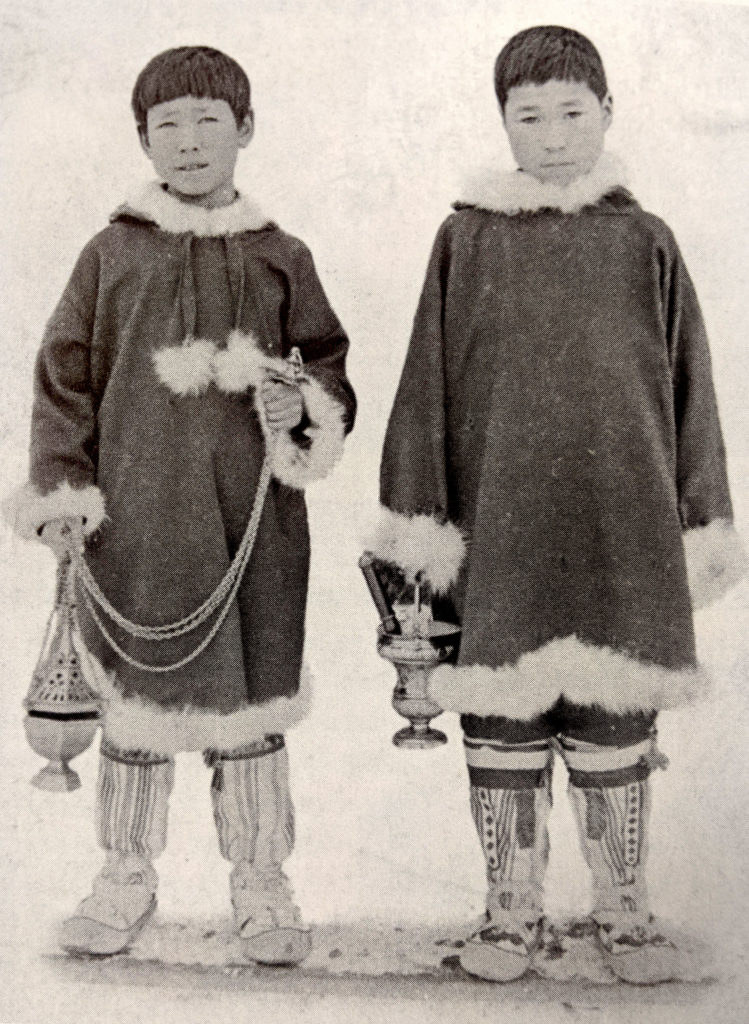
Hence, by 1910, Catholic Extension Society funds were already reaching new American territories like Puerto Rico, the Philippine Islands and the Panama Canal Zone.
Stateside, Father Kelley also ensured that Catholic Extension Society’s reach was broad and deep. He tirelessly raised funds for African American communities in the Deep South, for immigrants settling the prairies and working on the vast railway system, for Native Americans living on reservations in the West and for Latino Catholics in the Southwest.
For example, St. Peter’s Church was built with the help of Catholic Extension Society for a growing Black Catholic population in Pine Bluff, Arkansas. School children attended music class at St. Peter’s School, pictured here from the May 1917 issue of Extension.
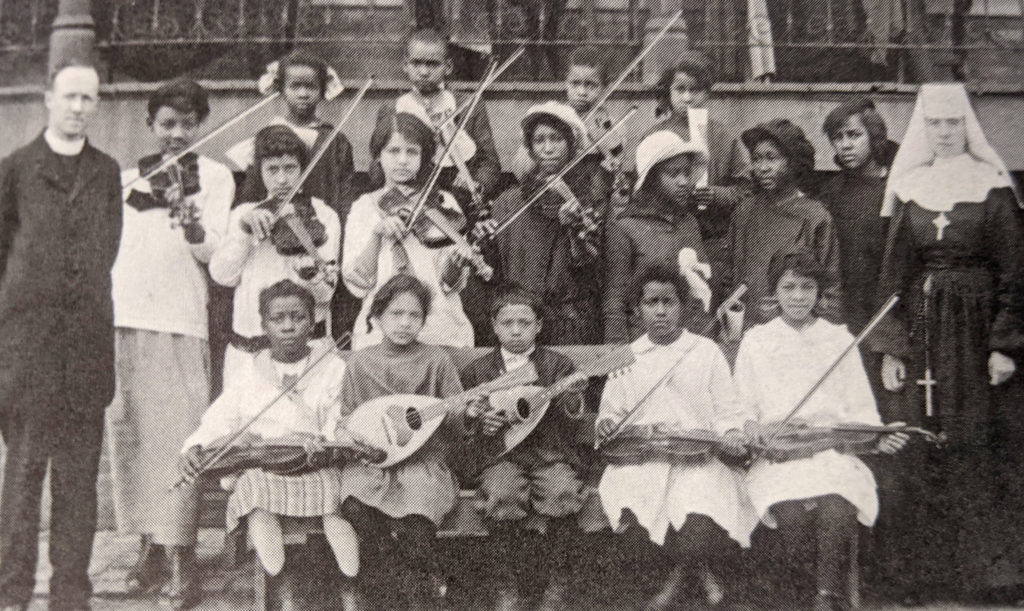
He also wrote extensively about the need to help immigrants arriving to this country. Father Kelley wanted to make sure that no community fell through the cracks in America’s great expansion.
While serving as Catholic Extension Society’s president following World War I, Father Kelley became an international advocate, attending the Paris Peace Conference to champion the rights of persecuted religious peoples in the Americas.
Consequently, he became involved during the bloody suppression of the Mexican Catholic Church in the 1920s, asking Extension donors to help religious refugees who were fleeing violence and arriving at the southern U.S. border. He even housed exiled Mexican bishops in his rectory at St. Francis Xavier Church in Wilmette, Illinois, where he served as pastor during his tenure as Catholic Extension Society’s president. These efforts earned our Canadian-American founder the nickname, “The Guardian Angel of Mexico.”
He led the implementation of Catholic Extension Society chapel cars, which reached marginalized communities in the early 20th century, including Mexican immigrants who worked on the railroad. In this 1921 photo, they attended Mass in Price, Utah.
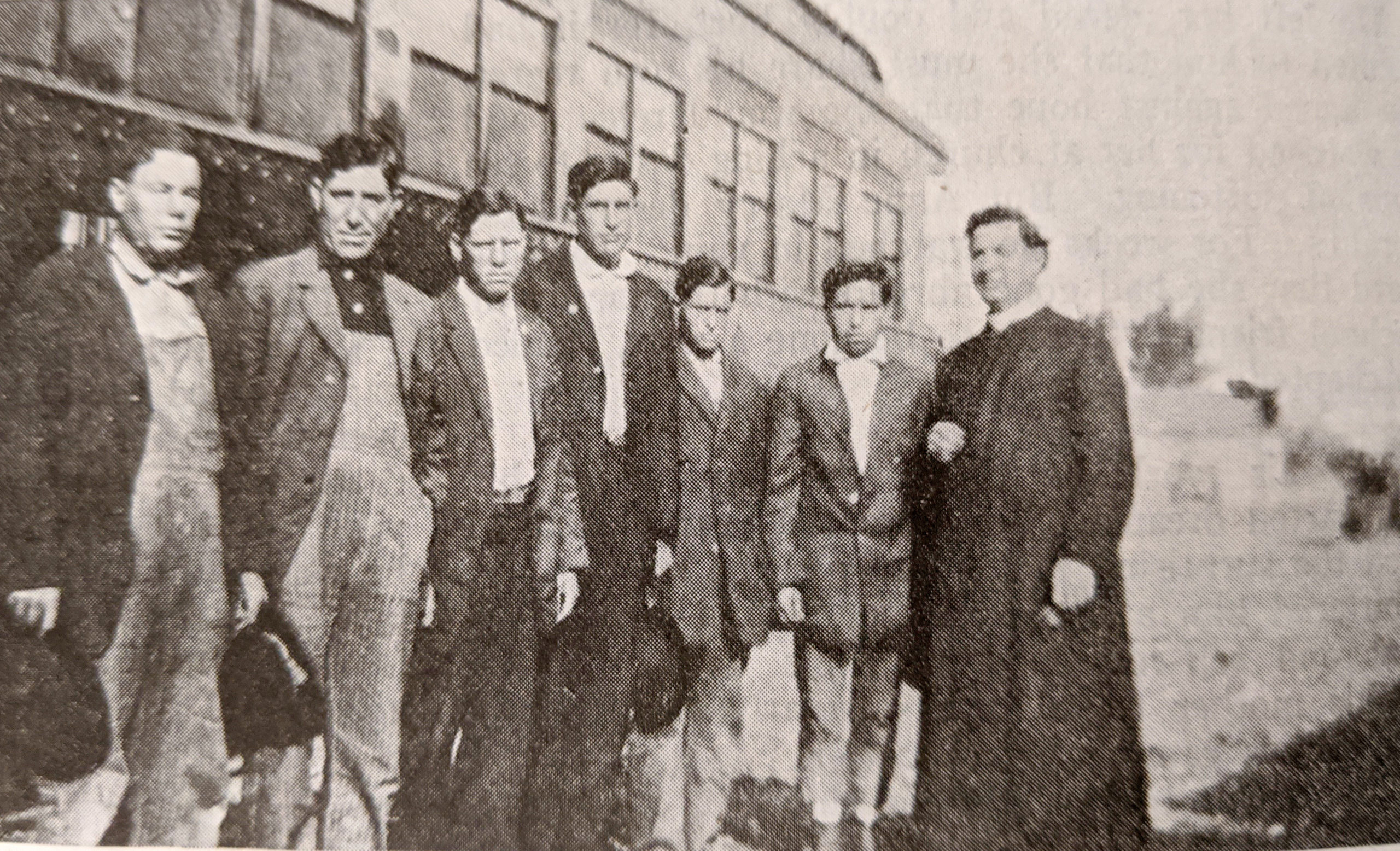
After serving for 19 years as our founding president, Father Kelley was named bishop of Oklahoma, which was at the time, coincidentally, a poor diocese relying on Catholic Extension Society’s help. Arriving shortly after the Tulsa Race Riot of 1921, Father Kelley worked tirelessly to support African American communities, directing the establishment of Tulsa’s first Black Catholic institution, St. Monica parish and school. He later created Oklahoma’s first racially integrated medical facility by hiring African American doctors at the local Catholic hospital.
He lived out the rest of his days as the shepherd of Oklahoma, where he continues to be celebrated as a local legend.
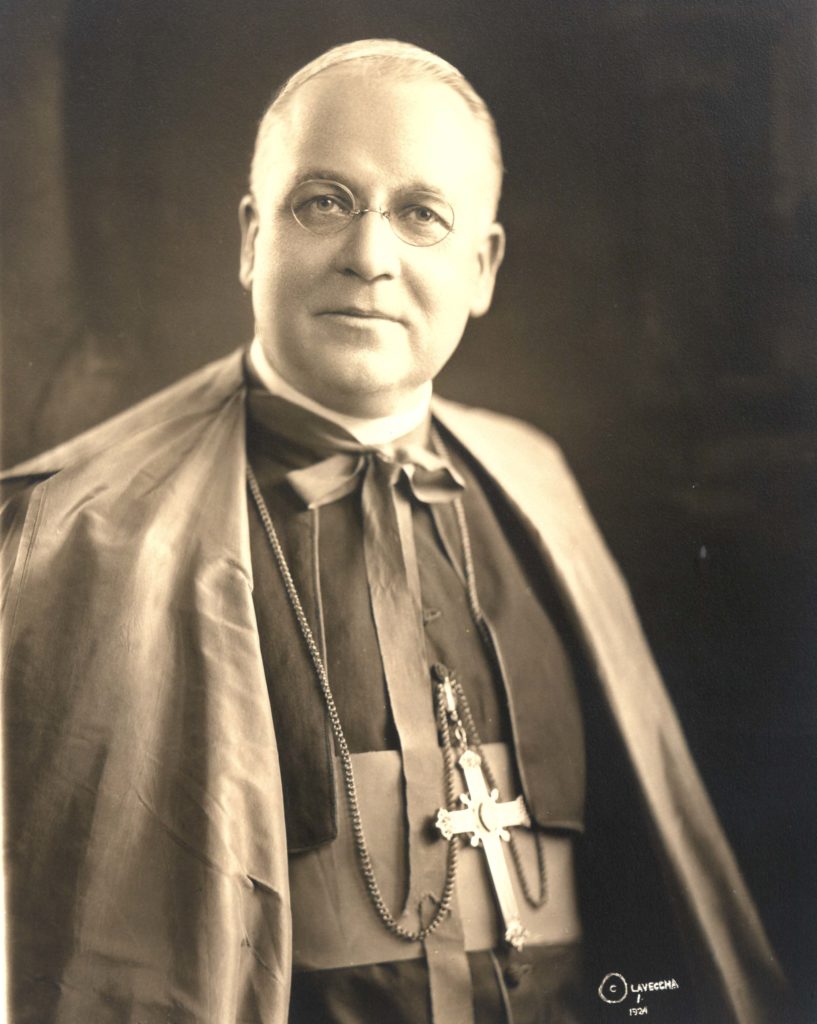
Father Kelley’s original vision lives on through the activities that Catholic Extension Society has supported over the past 115 years. He was never satisfied with the status quo and always finding new ways to deepen and expand Extension’s support to people in need of a helping hand. Throughout his life, Father Kelley remained focused on the core mission of Extension—to build up vibrant Catholic faith communities in the poorest regions, serving the marginalized whose stories and human dignity were often overlooked.
Today, Catholic Extension Society continues to deepen and expand our activities and reach more people, and we never accept the status quo as “good enough.”
In the 1960s, Catholic Extension Society leaders called attention to the Church’s duty to join the fight for Civil Rights. Celebrating the fact that Catholic clergy took part in the famous March at Selma, the May 1965 edition of Extension quoted Dr. Martin Luther King Jr.’s words to people of faith: “I hope the church as a whole will meet the challenge of this decisive hour.”
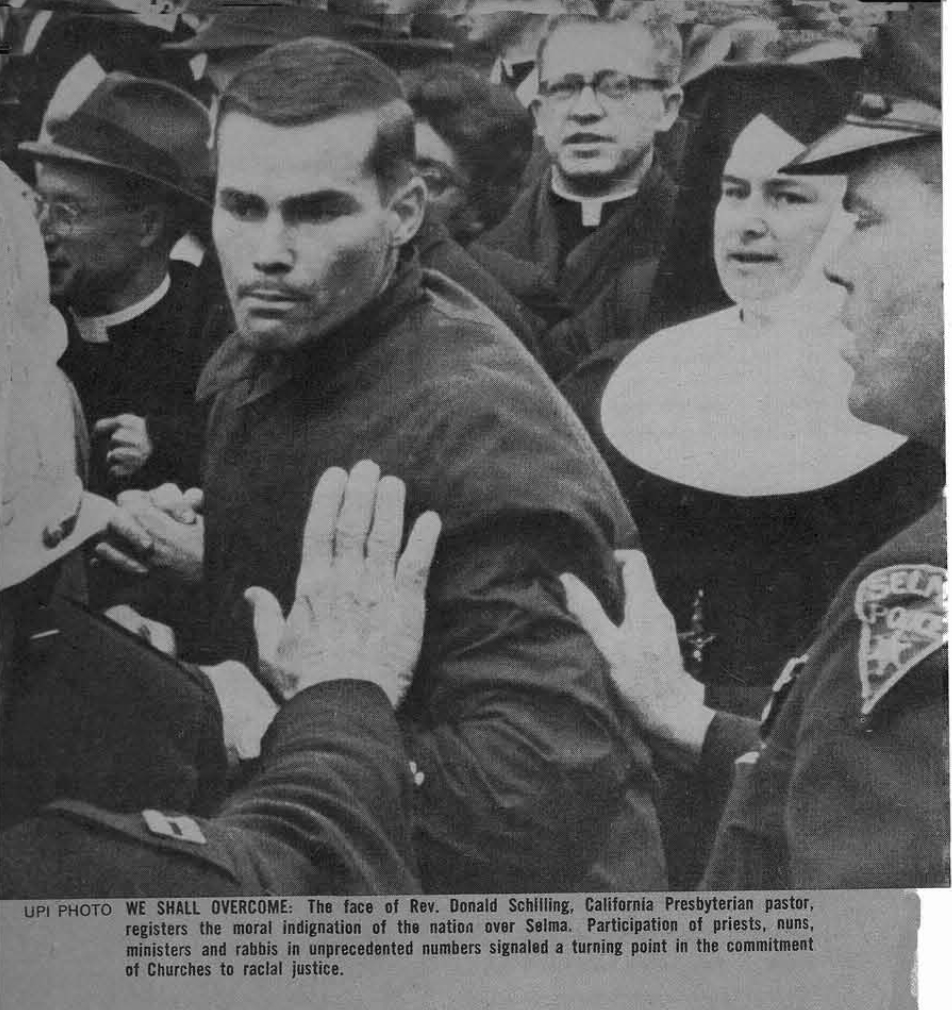
Catholic Extension Society remains tireless in our concern for the forgotten people and places across America. Today we serve culturally diverse communities in 86 dioceses. We continue to work with the marginalized, the immigrant and the refugee, providing care in the poorest regions of our country.


